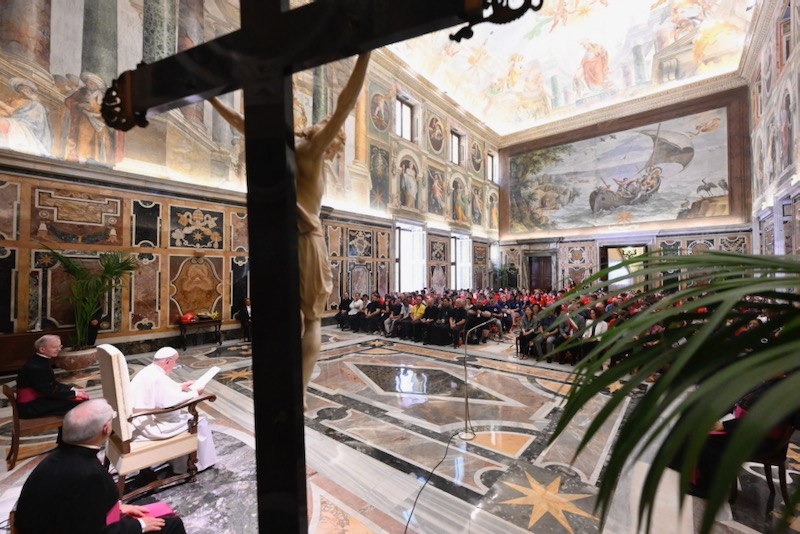But / How would you ad-Dress a Cat? asks T.S. Eliot, and although he goes on to make a whole poem out of it, the possibilities he offers are reasonably few even before “in time you reach your aim, /And finally call him by his NAME”. Human beings are far more complicated, though just as with Eliot’s cats, it is in fact the area before you get to names that is the most tricky.
People do get very concerned about it, probably because they feel that others will draw conclusions on scant evidence. And we do, oh we do; I am irritated by people who pretend that “Ms” is difficult to pronounce, when it follows exactly the pattern set by other labels. “Mr” should cause far more trouble but doesn”t, and Miss is the only one actually spelt in full. “Mrs” is an oddity because of the “r”, which comes from the archaic “mistress” used (like the French madame) for any grown woman, but is pronounced “missis”. All you have to do with Ms is supply a single i, and you”re home and dry. I don”t really mind which people use, so long as it isn”t Mr and so long as the person speaking has the courage of their convictions and doesn”t just mutter unintelligibly.
Diplomatic life and travelling means that I’ve been addressed in several different ways, including “Memsahib”, “Excellency” and “Ma”am”, but most people usually move on fairly quickly, with a bit of encouragement. When you are dealing with royals or important people, there are clear rules and plenty of people to explain them to you. You don”t get to move on, but at least you can be sure that you are getting it right. With our own royalty, there is a pragmatic approach: you have to address them by their full title once, and then you can default to “Sir” and “Ma”am”, so what you do is attach their title to your first greeting (Good morning, or whatever) and then you don”t need to worry until the end of that function or event.
Usually the more important people are, the less they will be fussed about it. The Queen is the only person who can be addressed as “Your Majesty”, but again, you only need to do it once for each encounter. Less is more, and those who insist on lengthy titles risk seeming insecure. To be fair though, this is one of the (many) areas where UK and US usage diverge. There has been a sort of “title inflation” in the various anglophone Lectionaries as a consequence of standardisation, so that to a British ear, pomposity is winning out over reverence. The feast of Christ the King in my childhood has now become Our Lord Jesus Christ King of the Universe (it changed in 1969), and I am irresistibly reminded of the addresses we used to write in the front of books after our names (England, Europe, The World, The Galaxy, The Universe). To Infinity and beyond, certainly, but less is more. I understand that changing the title was to preempt all the new areas of space which keep being discovered every time we get a more powerful telescope, but I still feel that Christ the King is a title which stands best on its own.
I have never got to grips with the differences between Right Reverend, Very Reverend and Venerable (I know where to look them up if I need to), but I had always assumed that the people who use them mostly did it in writing. Then I heard somebody on the radio introduce himself as the Very Reverend followed by his name. I think I would find that difficult to do without laughing, either to avoid sounding self-important or because it would strike me as ridiculous, but I suppose you have to get used to it.
We are going to be getting a new parish priest this autumn, as our current incumbent and his main helper are both retiring. The new priest (we have heard) is young, and I am wondering what it will be like to address him as Father. Policemen of course have been getting younger for years, but I rarely see them around to speak to nowadays; and I seem to have missed the sweet spot when politicians were the same age as myself. For years they were all grey-haired seniors, but now they are all distinctly younger, even if they constantly make reference to wartime. My children ask me to explain some of Boris Johnson’s slang and references, and I can only do so by racking my brains for what I remember from my parents and grandparents; but Boris Johnson is definitely younger than I am. Many of the authority figures in my life are beginning to be appreciably younger than I am, and it’s an odd feeling. When my last parent died (I include my parents-in-law in this group), I felt more exposed than I expected, like the first time we took the children away on holiday : everything was our responsibility, we were the grown-ups, and we had to get things right on our own. Now the Government and the professions are full of people closer to my children’s ages than to mine, and I”m supposed to trust them to know more than I do. Hmm.
Why do we call priests Father? As a sign of respect, a sign of submission, but basically just because we always have. Except we haven”t; actually this came in very late. In the Middle Ages, priests were called “Sir”, as we see in Chaucer. During the Reformation, Catholic priests were called “Mr”, to preserve their lives as long as possible in a hostile environment. After the restoration of the Catholic hierarchy in the middle of the nineteenth century, Catholic priests had to be distinguished from Anglican vicars, and calling them “Father” was one way to do this. I blame the Counter-Reformation (you always do, says my husband wearily) for all the baggage which then developed around that. The exaggerated mysticism applied to Mary’s motherhood for centuries was applied to the “fatherhood” of a celibate priesthood in spades.
Jesus told the disciples, “Call no man “Father”(Mtt 23.9), but it’s in the section just before the “Woe to you, scribes and Pharisees, hypocrites” (repeated several times) speech, and Jesus also tells them not to allow themselves to be called “rabbi”. There is one teacher or master, and it is “the Christ”; there is one Father, who is in Heaven. Jesus is talking about choosing and addressing authority figures; he warns against assumptions and commends humility. We call our own fathers by that title because we know and love them; but Jesus counsels against giving that amount of loving trust and obedience to anyone else but God. Among his followers, he tells us, “you are all brethren” (Mtt 23.8). But this is a mixed group, so nowadays we would say “brothers and sisters” or even “siblings”. That is a good model for a group of equals once they are all grown. You can have heated arguments and discussions; different people have different expertise in different areas, but all at the service of the group, and underneath everything are bonds which cannot be broken, and a common experience.
The old distinction between “Father” and “Brother” for monks was that Fathers were ordained priests and Brothers were not, but if we accept the possibility of not calling priests Father, there’s no reason why every male Religious should not be a Brother. Female orders seem to manage without so much distinction; some differentiate between “Sisters” and “Mothers”, but when that was attempted at the (Dominican) convent where I went to school, it petered out very quickly, because it didn”t seem to matter very much. Benedictine nuns used to have Dames as well as Sisters, which seemed very exotic. There was an abbey as well the convent in my home town, and the nuns there had a dog ( a black and white shepherd dog, naturally), which we used to call Dame Wopsy. The nuns never seemed very concerned about what they were called, possibly because the basic distinction about not being allowed to be priests or even technically in Holy Orders made other distinctions less important. I have not come across a High Church female Vicar who is addressed as “Mother”, but then Vicar is helpfully not sex-specific (and hooray for the Anglicans, I couldn”t have written that some years ago), and is not freighted with as many implications as Father. Indeed, it specifically points towards somebody else; a “vicar” is always a stand-in. That is what the word means. One of the Pope’s titles is Christ’s Vicar.
“Father” for priests is handy because you don”t need to think about it or know anyone’s specific name, but surely “Brother” would do just as well. Or even a first name. It’s like in a doctor’s or dentist’s waiting room: I don”t like being addressed by my first name when I cannot reciprocate. I am luckier than many, because my name is not what people I know call me. In official situations, I am addressed as Catherine, and I instantly know that it’s not one of my friends or family speaking; but I do not like to be addressed as Kate unless I am at least in a position to know the other person’s informal name. Otherwise the places from which we are speaking are not level. There is of course a clericalist angle to this, and it must have been one of the basic factors facilitating child abuse. You don”t mistrust a father until the evidence has been piled up around you.
Addressing God is the easiest of all, because he is a special case. Jesus tells us to call him “Our Father”, and so we do, but we can also call him Lord or even just God. These are role titles, more than names, but we use them for no one else, so they work, both as designator and as a form of address. And he has a special name for us, which we don”t know yet, but it’s so important to him that he has written it on the palm of his hand, like a tattoo, or a phone number that you really don”t want to lose, so you’ve written it on your wrist. God definitely knows your name; he even knows the name of every single star (Ps 146/147.4), even the thousands of billions of new ones which the new telescope has just revealed to us. He would know exactly how to ad-Dress a cat.
Kate Keefe composes musical settings for the Mass and writes about the psalms. You can follow her on Facebook, Twitter and LinkedIn.



 Loading ...
Loading ...
What do you think?
You can post as a subscriber user ...
User comments (1)
On the history of clergy titles, my understanding (which may be wrong) has been the reason why in England the privilege of being called 'Father' was extended to secular priests in the early 19th century was to avoid invidious distinctions between them and priests in religious orders who had always been so addressed. And I think 'Mr' has always been the correct form of address for Anglican clergymen. To address them as 'Reverend Smith' or 'Reverend Bill' is a solecism (though nowadays a very common one), although one should of course say 'The Rev(d) Bill Smith' as part of the address on an envelope. In any case, calling them 'Fr Bill' or 'Fr Smith' is increasingly widespread, although I think many of them find this irritating. (But I never know how one should address woman priests who one isn't on first name terms with.)